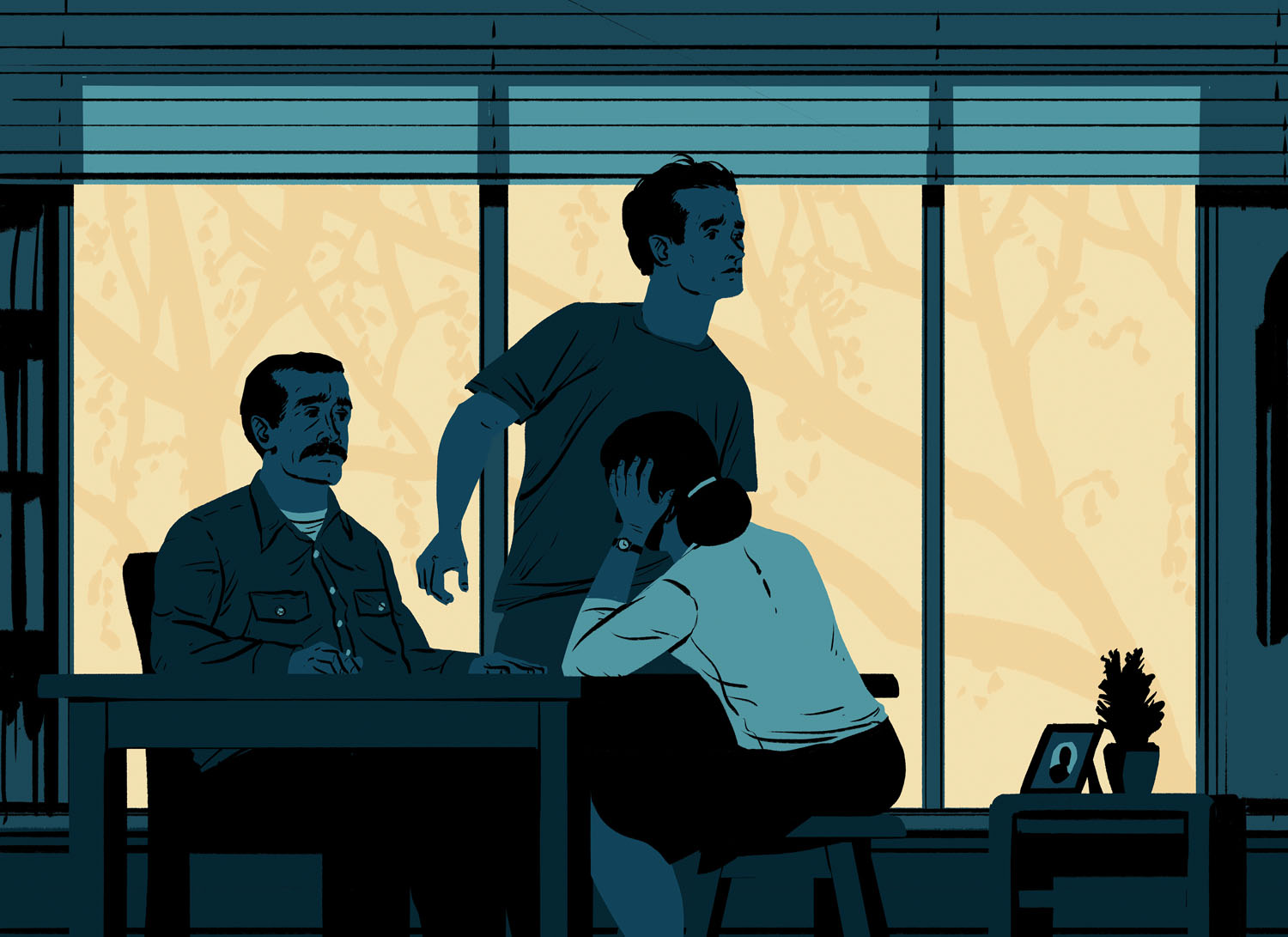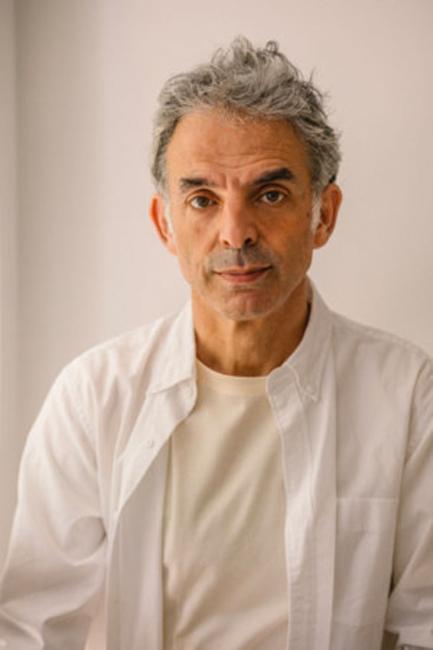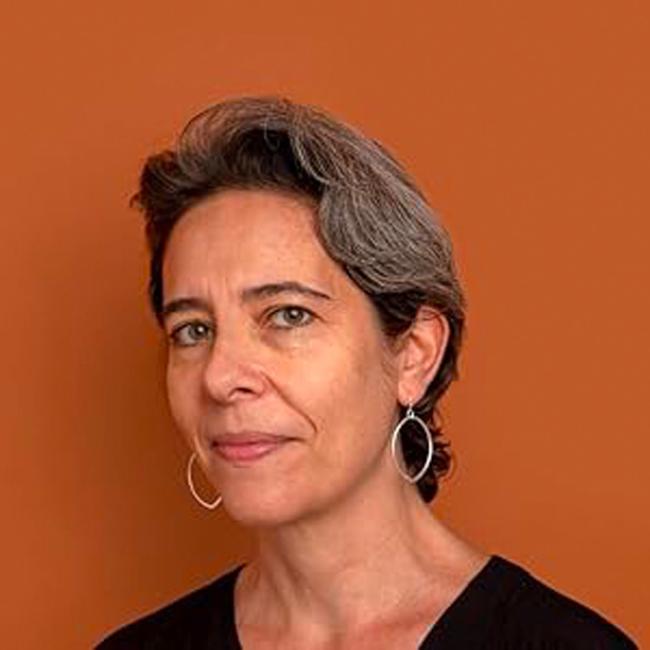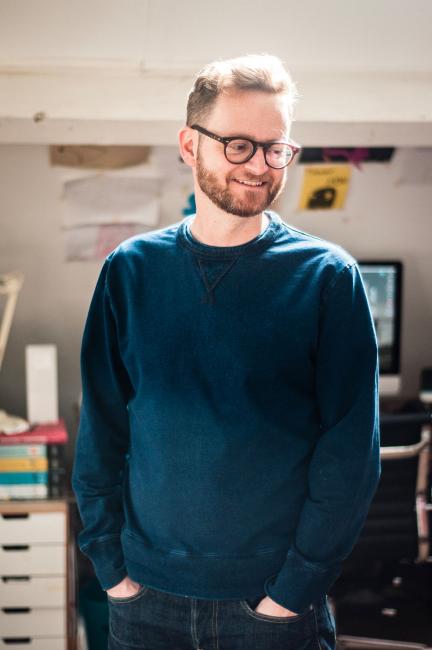
Corners

And then they started fighting about what the gravestone would say. Noam’s dad wanted “Son, something, and friend, plucked in the prime of his life.” He didn’t know what the “something” would be yet, just that there had to be three things, for the rhythm. Noam’s mom didn’t like plucked: “What do you mean, plucked? What is he, a guava?” She wanted it to say murdered, which kicked the discussion up into even harsher tones. Noam’s dad snapped that this was so typical of her: losing her temper, distorting reality, pointing fingers, to which Noam’s mom replied that if he wanted to call a drunk kid going eighty miles per hour, swerving into oncoming traffic and killing their son a plucker, then that was just fine, but not on Noam’s grave.
And then Noam’s mother started weeping silently, and Noam’s dad went over and hugged her. They’ve been divorced since forever. Noam once told me that he’d never seen his mom and dad together in the same place since the day he was born, not even in a picture. When he was little he’d searched, but his father didn’t have any photo albums, and his mother had meticulously cut his father out of all the photos she’d kept. Every last one. Even the wedding pictures.
And then Noam’s dad let go of the hug but left one arm on Noam’s mom’s shoulder and suggested that I should be the one to come up with the gravestone inscription. That way, they wouldn’t fight. Besides, I’m an author—words are my vocation, so I’d probably do a better job than either of them could. I wanted to politely refuse and explain that crafting a gravestone inscription had nothing to do with writing fiction, but Noam’s mom, who had stopped crying, said he was right: That’s what Noam would have wanted. And she said it made sense, because I was the last person who’d seen him alive.
And then Noam’s dad quickly went to get a pen and paper, as if he’d sensed my discomfort with the whole thing and wanted to lock me in. He shifted one of the kitchen chairs with a screech and signaled for me to sit down. I didn’t want to, but I had no choice. Noam’s mom sat on my left, his dad on my right. It felt weird. Unnatural. As if we were about to sign an apartment lease. I knew I wouldn’t be able to leave until I came up with an inscription, and I really wanted to leave. To buy time, I wrote down Noam’s date of birth and date of death on the piece of paper. Noam’s dad pointed out that we should use the Hebrew dates, not the Gregorian ones. I nodded, as if I already knew that, and admitted that I wasn’t very good with Hebrew dates. Noam’s dad leaned back and said, almost to himself, “A Hebrew writer who isn’t good with Hebrew dates?”
And then I started frantically jotting down all kinds of things about Noam: how talented and good-looking he was. How everyone loved him. How we’d miss him. How he was leaving behind a void, and so forth. Noam’s mom said, “That’ll never fit on the stone. It’s too long.” And his dad said, “But it’s nice. Nice, and true.” Noam’s mom looked at me with her chilling green eyes and asked what the last thing Noam had said to me was. That stressed me out. I started stammering. Noam’s dad wanted to know what that had to do with anything, and Noam’s mom said it did, because whatever Noam had said might be something we could put on the stone. That convinced Noam’s dad. I pretended I couldn’t remember, but they wouldn’t let it go. Noam’s dad said we had plenty of time. He offered me coffee. He also offered Noam’s mom coffee, but she said she wasn’t thirsty. She didn’t take her eyes off me, even while she was answering him. I told them that before Noam got in the car he’d said to me, “Look at us, we’re not kids anymore.” Noam’s dad said we could write, “Son, not a kid anymore, friend,” but he was worried that might sound a little forced. Noam’s mom kept glaring at me and then she said I was lying. She said Noam had never said any such thing to me.
And then my phone rang. I looked at the screen and it said unlisted number. I pretended it was an important call. That I had to take it. On the other end of the line was a recorded message, but it took me a few seconds to realize that. It was someone named Aviram Yifrach, who was running for mayor of Ramat Gan. Yifrach promised that if I voted for him he would tackle corruption and provide more parking spaces. I hadn’t lived in Ramat Gan for years, but I’d never bothered to change my address. Yifrach said Ramat Gan was a sad, dying city and that he would bring it back to life. I listened to the entire message and then said, “Okay, I’ll be there in half an hour.” When they walked me out to my car, Noam’s mom accused me of lying again. She said I was lying to grieving parents, and that was an ugly thing to do.
And then Noam’s dad started yelling at her: A friend of Noam’s, a famous author, had volunteered to help them come up with the inscription for free, and instead of being grateful, she had to take offense. “You’ve always been like that,” he added. “It’s like if you’re going down, you’re taking everyone down with you. When you’re unhappy, you make damn sure everyone around you is too.” Noam’s mom started crying again, loudly this time. She tried to keep her cool but she couldn’t. “Apologize to him right now,” Noam’s dad demanded, “or else he’ll leave and not come back. And the two of us will never be able to get this text finalized.” I tried to stop him. I said there was no need to apologize, everything was fine, it’s just that I had to leave, but after my meeting I’d give them a call and we’d get it all sorted out over the phone. But that just made her even angrier. I know, I shouldn’t have said “everything’s fine” to a mother who’d just lost her son. What kind of a writer was I? I couldn’t figure out the Hebrew dates, couldn’t even choose the right words.
And then Noam’s mom repeated that I was a liar. A liar and a coward. And that I always had been. In my stories too. Noam used to bring her my books with trembling hands, as if I were at the very least some kind of Chekhov, but she’d always sensed it: the way I cut corners, the pandering. Everything was always in there except the truth. She never told Noam how she felt. It was so rare for him to have a real friend, and she hadn’t wanted to ruin it for him. But now wasn’t the time to be polite or nice, she said. This wasn’t just another saccharine story I was pulling together so that the cardigan-wearing librarians would like me. They were standing outside, next to me. I was sitting in the car with the key in the ignition, but the car door was still open, and even though it was cold, I didn’t dare close it. There was an uneasy silence, and then Noam’s dad said that if Noam hadn’t been an only child, they could have written, “Son, brother, and friend,” but it couldn’t be helped: They’d barely even managed to have him, and by the time he was three months old they’d already filed for divorce.
On the way back to Tel Aviv, I tried to come up with an inscription. Something I could text them instead of apologizing or sending flowers. The last thing Noam had said to me before he drove off was “That’s it, finito, you and I are done.” Which could have been a pretty good inscription for a gravestone, but not Noam’s. I tried to forget, tried to dig through all the other words racing around my mind, including the ones that really weren’t right, seeing if I could force them into a thirty-by-seventy-inch marble rectangle. But no matter how I arranged them, they always ended up melding into a story.
Jessica Cohen is an independent translator born in England, raised in Israel, and currently living in Denver, Colorado. In 2017, she shared the Man Booker International Prize with David Grossman for her translation of A Horse Walks into a Bar (Knopf, 2017). She is a recipient of Guggenheim and NEA...
Paul Blow’s work has been published in The New York Times and The Guardian. He has worked for clients such as Nike and Penguin Books.



